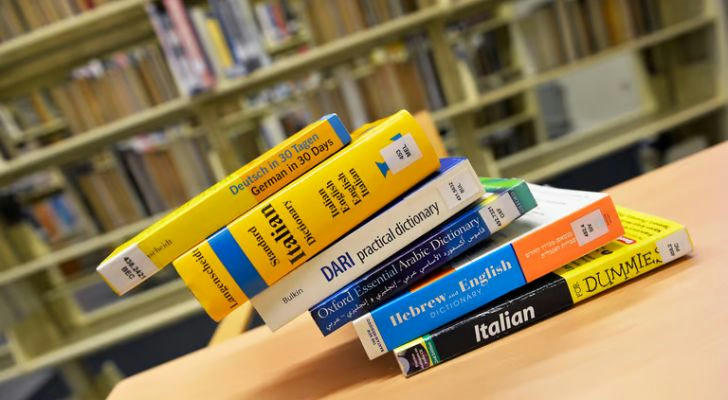Effective Strategies For Quickly Learning a New Language
Language learning is important because it enhances communication, fosters cultural understanding, and opens up career opportunities. It allows you to connect with diverse people and navigate different environments.
To learn a language quickly and effectively, set clear goals, immerse yourself in the language through media, practice speaking regularly, and use language learning apps. Engaging with native speakers and focusing on vocabulary will further accelerate your progress. Consistency and motivation are key to achieving fluency.

Set Clear Goals
Setting specific, measurable goals helps you stay focused and motivated in your language learning journey. Clear goals provide direction, making it easier to track your progress and celebrate achievements. When you know exactly what you want to accomplish—like learning a certain number of words each week or being able to hold a conversation—you can create a structured plan. This clarity reduces overwhelm and increases accountability, helping you make consistent improvements and maintain enthusiasm along the way.
Here are some examples of short-term and long-term goals for learning a language.
Short-Term Goals: Learn 20 new vocabulary words by the end of the week. Complete one chapter of a language learning app each day. Practice speaking with a language partner for 30 minutes twice a week.
Long-Term Goals: Achieve conversational fluency within six months. Read a novel in the target language by the end of the year. Take a language proficiency test (like the DELE or HSK) within a year.
Immerse Yourself in the Language
Creating a language-rich environment involves immersing yourself in the language as much as possible. One effective strategy is to label everyday items around your home with their names in the target language. This simple act helps reinforce vocabulary in your daily routine and keeps the language visible. Labeling your space with vocabulary in your target language is a proven technique supported by language experts.
According to Dr. Stephen Krashen, a renowned linguist and educator, the practice of labeling objects helps create a visual association, enhancing memory retention. This method allows learners to constantly engage with the language in their everyday environment, making it easier to recall vocabulary and improve overall fluency.
Reading regularly can further immerse you in the language. Choose books, articles, or blogs in the target language, starting with simpler texts and gradually increasing their complexity. This practice helps build vocabulary and improves comprehension.
Research shows that individuals who read in their target language for at least 30 minutes a day can improve their vocabulary retention by up to 40% compared to those who don’t. This consistent exposure helps reinforce grammatical structures and increases overall comprehension, making reading an invaluable tool for language learners.
To maximize your learning, try to think, write, or speak in the language during your daily activities. Incorporate language learning apps into your routine for additional practice and reinforcement.
Finally, seek out native speakers through conversation partners or language exchange groups to practice speaking. By integrating the language into your daily life, you'll enhance your learning experience and improve retention.

Practice Speaking Regularly
Speaking practice offers numerous benefits for language learning. Firstly, it boosts confidence and reduces anxiety when communicating in the target language. Regularly speaking helps reinforce vocabulary and grammar, leading to better retention.
It also enhances pronunciation and fluency, making conversations more natural. Additionally, engaging in speaking practice allows learners to receive immediate feedback, helping to identify and correct mistakes.
Overall, it fosters real-life communication skills, making it easier to connect with native speakers and navigate everyday situations.
Research indicates that learners who engage in conversation practice at least three times a week can improve their fluency by up to 30% faster than those who focus solely on reading and writing.
Regular speaking not only boosts confidence and reduces anxiety but also reinforces vocabulary and grammar, leading to better retention. Furthermore, it enhances pronunciation and fosters real-life communication skills, making it easier to connect with native speakers.

Use Language Learning Apps
Using language learning apps is an effective way to enhance your language skills conveniently and interactively. These apps, such as Duolingo, Babbel, and Rosetta Stone, offer structured lessons that cover vocabulary, grammar, and pronunciation.
Many of them use gamification techniques(Gamification techniques make learning fun by using game features like points, rewards, and challenges.) to keep learners engaged, making the process enjoyable and motivating.
Choosing the right app is essential for effective language learning. For example, “Duolingo” is an excellent choice for beginners due to its user-friendly interface and gamified approach. It offers bite-sized lessons that make learning fun and engaging.
On the other hand, “Babbel” is ideal for those who want a more structured curriculum with a focus on real-life conversations and practical vocabulary. Exploring these options will help you find the app that best fits your learning style and goals.
One user experience with language learning apps like Duolingo illustrates their effectiveness and engagement. A user, Sarah, started learning Spanish with Duolingo and found the app’s gamified approach motivating. She enjoyed earning points and completing daily challenges, which kept her committed to practicing every day.
Sarah appreciated the bite-sized lessons, which fit easily into her busy schedule. She noticed significant improvements in her vocabulary and comprehension after a few weeks of consistent use.
Additionally, the app’s interactive speaking exercises helped her gain confidence in conversation, making her feel more prepared for real-life interactions with native speakers. Overall, Sarah’s experience highlighted how the app made language learning fun and accessible.
Statistics show that users who practice with language learning apps for just 15 minutes a day can achieve significant progress. For example, a study found that regular app users improved their language skills by approximately 20% over a three-month period.
Additionally, the flexibility of these apps allows learners to practice at their own pace, fitting language study into their daily routines. Overall, language learning apps provide accessible resources that can complement traditional learning methods, helping you build a solid foundation in your target language.

Conclusion
In conclusion, effective language learning combines clear goal-setting, immersion, regular speaking practice, and the use of apps. By establishing specific objectives and creating a language-rich environment, learners can enhance retention and comprehension. Speaking frequently boosts confidence and fluency, while apps like Duolingo and Babbel offer engaging, flexible learning options. By integrating these strategies into your routine, you'll not only accelerate your language acquisition but also make the process enjoyable and rewarding, leading to lasting proficiency.
